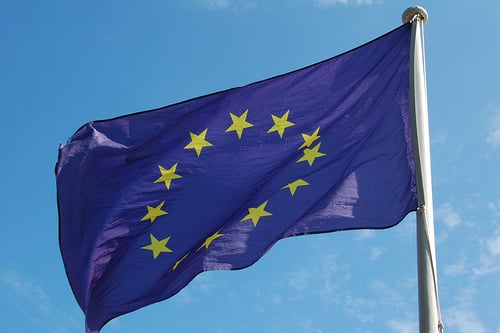
Photo: eisenrah via Visualhunt.com / CC BY-NC
Culture leaders across Europe warn against ‘hard Brexit’
Artist Mark Wallinger and musician Julian Lloyd Webber are among those backing a Pan-European set of recommendations for Brexit negotiators in the UK and Europe.
Cultural leaders across Europe have joined forces with prominent figures in science and education to warn negotiators working on the UK’s withdrawal from the European Union (EU) about the dangers of a ‘hard Brexit’.
Representing a “clear and strong sector consensus” across Europe, the British Council communiqué includes a series of recommendations for freedom of movement, participation in multilateral programmes and support for young Europeans in order to prevent the emergence of a “lose-lose” scenario.
“There is strong will across Europe for continued close collaboration in arts and culture, science and research, skills and education to the mutual benefit of all countries involved,” Sir Ciarán Devane, Chief Executive of the British Council, said.
“As individuals we all invest in our friendships, so we must invest in our European friendships. We cannot take them for granted. These recommendations shore up the fields that will underpin our current societies and future relationships with the continent and may ease fractious relationships as the politics of Brexit proceed.
“By accepting these recommendations the UK and EU27 can prove they value good relationships and strengthened cultural ties with neighbouring countries.”
The news comes as a poll by the London School of Economics finds 60% of Britons want to keep EU citizenship, and people would on average be prepared to pay more than £400 a year for such a status.
Communiqué
Delivered to all 28 EU member state governments and the European legislatures, the communiqué has received 400 official endorsements from people working in the arts, science and education across 28 European countries.
These include Creative Industries Federation Chief John Kampfner; V&A Director Tristram Hunt; artist Mark Wallinger and musician Julian Lloyd Webber in the UK; alongside organisations such as the European Cultural Foundation, Culture Action Europe, and the European Union Youth Orchestra.
It recommends maintaining ease of movement between the UK and other EU countries for people working in the cultural, educational, scientific and research sectors, suggesting this could be achieved through a “simple, cheap and easy to obtain ‘culture and education permit’”. It adds that this should only be introduced if “absolutely necessary”, and any such measures should be low-cost, rapid-to-process and applied for adequate periods.
In addition, it says ‘lose-lose’ scenarios could be avoided by:
- guaranteeing residency rights for EU nationals living and working in the UK and vice-versa
- continuing UK participation in programmes such as Creative Europe and Erasmus+
- engaging young people in policy making through inter-cultural and international experiences, delivered through study, work, performance, research or exchanges
- cooperating on UK-EU intellectual property issues and regulation.
“It is vital that Brexit does not mean a reduction in educational, cultural and scientific cooperation between the UK and other European countries,” the document reads. “Rather, we should make it an opportunity to review, re-design and strengthen such links”.
Explaining Amsterdam-based European Cultural Foundation (ECF)’s decision to support the British Council recommendations, Tsveta Andreeva, the organisation’s Senior R&D officer, said: “Our biggest concern, as a future oriented organisation, is that in 10+ years from now, there might be fewer opportunities for future generations of artists and cultural operators in UK to engage in cross-border multilateral cultural collaborations with multiple European partners.
“ECF have therefore co-signed this Communiqué for EU-UK Policymakers, because it reflects to a largest extent to our concerns regarding the ‘Brexit’ process.”
Join the Discussion
You must be logged in to post a comment.